Small Faces - Profile
by Malcolm Carter
published: 9 / 8 / 2014
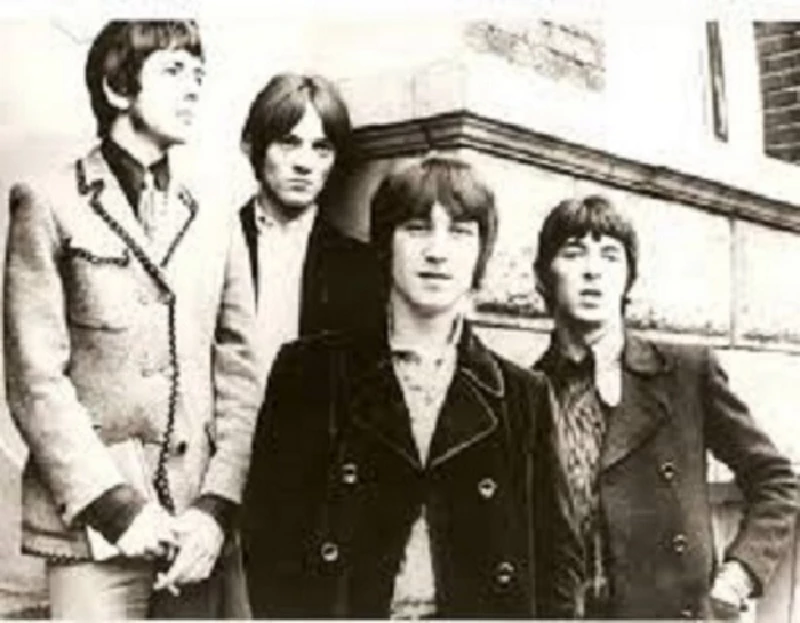
intro
Malcolm Carter looks back on the short but influential career of the Small Faces, who have had recently had two of their many reissues, 'Greatest Hits - The Immediate Years 1967-1969' and US only album 'There Are But Four Small Faces', re-released
Has any other major sixties band had their small but impressive back catalogue plundered so recklessly as the Small Faces? The band started out as just another mod R&B outfit but quickly embraced the burgeoning psychedelic scene more successfully than many of their contemporaries. The Rolling Stones psychedelic period was short lived and not entirely successful (although ‘Their Satanic Majesties Request’ hasn’t aged too badly), the Who briefly touched on the genre at times on the excellent ‘Who Sell Out’, the Kinks more or less steered clear while the Beatles as usual led the way. Of course, there were many other bands who suddenly dropped their R&B roots and adapted their sound to suit the psychedelic scene and some classics emerged; the Pretty Things at one end of the spectrum, the Alan Bown! at the other, but time has forgotten that the Small Faces, when released from the confines of Decca Records and given their much needed freedom at Immediate Records, were one of the most experimental bands of the mid-sixties. Singer and lead guitarist Steve Marriott was born to be a star. All the girls wanted Marriott and all the boys wanted to be him. Marriott had it all; the looks, the cheeky-chappie persona, the right moves, that voice (one of the best blue-eyed soul voices ever) and the hair, oh, how we all wanted the hair. But it wasn’t all about Marriott. Bassist Ronnie ‘Plonk’ Lane might not have had the soulfulness in his vocals that Marriott had but he was the perfect vocal partner, and Lane’s vocals, in particular, were perfectly suited to the more experimental Immediate sides the band cut. With Ian McLagan on keyboards (still in demand in the studio and heading his own band) and Kenney Jones on drums (later to replace Keith Moon in the Who), the Small Faces were not only one of the few good-looking, well-dressed bands that attracted fans of both sexes with no jealously, but they were far from shabby musically as well. While the band found success at Decca Records with four top ten singles in 1966 and a top five album with their self-titled debut which was split between band originals, a handful of songs written by songsmith Kenny Lynch, a cover of Sam Cooke’s ‘Shake’ and the band’s first chart hit ‘Whatcha Gonna Do About It?’ from 1965, it was the move to Immediate resulting in the single ‘Here Come the Nice’ halfway into 1967 which really proved that the band was a force to be reckoned with. Looking back at how easy it was to get a song banned by the all-important BBC back then, it’s remarkable that the Small Faces got away with such a blatant tribute to a drug dealer; the song made number twelve in the charts and hung around there for nearly three months. As that song faded from view, the band released ‘Itchycoo Park’, which became something of a burden for them. While their Decca period neatly merged their R&B roots with a pop sensibility, that first Immediate single was a powerful statement that here was a band who wanted to leave the screaming girls behind and be taken more seriously. ‘Itchycoo Park’ was a glorious summer slice of pop-psych but when the band mixed in a little of their R&B sound to this particular strain later in the year in the form of their best ever single ‘Tin Soldier’, the public weren’t so keen. It took the music-hall influenced ‘Lazy Sunday’ in 1968 to appease their mainly single buying audience. But it wasn’t only the singles chart that the band were dominating; in spite of Decca Records issuing a hotchpotch compilation under the title of ‘From the Beginning’ at the start of June 1967 consisting of previously released singles and a couple of songs that would also appear on the band’s Immediate debut (confusingly also self-titled like their Decca debut), the band’s ‘real’ new album, on Immediate, made the top twenty resting a few well deserved places higher than the Decca cash-in. The 14-track album showed that the band had progressed tremendously in the year between their Decca debut and the Immediate album. While their R&B leanings were still on show on tracks such as ‘Get Yourself Together’ the album was, in hindsight, a stepping-stone to the band’s classic ‘Ogdens’ Nut Gone Flake’ that would top the album charts in the middle of 1968. The lysergic ‘Green Circles’, the gentle ‘Show Me The Way’, the calypso-influenced ‘Eddie’s Dreaming’ all displayed different sides of this remarkably talented band who had yet to peak. And peak they would with ‘Ogdens’. Housed in a circular sleeve with one side given over to Happiness Stan’s quest to find the other half of the moon, the songs were interspersed by Stanley Unwin’s unique commentary. Sadly the band never followed up the album. Some of the songs planned for the aborted follow-up appeared on ‘The Autumn Stone’, which was released once Marriott had walked out of the Small Faces leaving McLagan and Jones to form the Faces with Rod Stewart and Ronnie Wood. But, being a double album package and fleshed out with a handful of what were really unfinished songs and some uninspiring live cuts, ‘The Autumn Stone’ was something of a disappointment after ‘Ogdens’. Marriott, of course, went on to form Humble Pie with another ‘Face’ who had grown tired of the adulation from screaming girls, the Herd’s Peter Frampton. There have been so many compilations through the years of the Small Faces' music. Given that the band only released three proper studio albums in their lifespan, the same songs have been recycled over and over again. It’s no secret that the members of the band have had problems receiving due royalties for their work. There are many books that bring this fact up, along with stories of how master tapes of the Small Faces’ Immediate recordings were dumped in containers and how the band’s work has been unofficially reissued time and time again. When Castle/Sequel/Sanctuary (call it what you will) began an Immediate Records reissue campaign, things improved a little. At least some thought had obviously gone into compiling the reissues and they were annotated properly at last; there was even a nice little tin edition of ‘Ogdens’ Nut Gone Flake’. When both Decca and Sanctuary became part of the Universal Music Group, it gave more hope to collectors that maybe some gems would now be uncovered and issued, although with some of the bonus tracks that appeared on extended albums that had already been issued on CD it felt that the barrel had really been scraped. Late October 2011 saw Universal reissue the original three Small Faces albums; both the self-titled sets on Decca and Immediate along with ‘Ogdens’. There were no bonus tracks, little in the way of liner notes, but the sound was arguably the best we had heard so far. One of the record labels that had been releasing Small Faces albums was Charly; their ‘The Immediate Years’ box set was a bit of a misnomer. Issued in 1995, the four CD collection actually covered the early Decca sides as well as collecting what seemed at the time every last recorded snippet that the band ever made from their Immediate period. There were even a couple of pre-Small Faces songs by Steve Marriott and The Moments. The sound was more than acceptable, and it appeared that this collection was going to remain the one to go for. Then things got complicated. Again. Spring of 2012 saw Universal/Decca/Sanctuary issue deluxe versions of the three original Small Faces plus the Decca compilation ‘From the Beginning’. The albums were 2CD packages (3CDs for ‘Ogdens’), lovingly put together and presented by Rob Caiger with the co-operation of surviving Small Face members Jones and McLagan. The remastering by Nick Robbins at Soundmastering produced the best sounding Small Faces CDs we’ve ever heard. At the same time Charly also issued a miniature hardcover book edition of the first Immediate album that had an identical track listing to the Universal edition. Charly also issued the same three ‘Odgens’ CDs in a round box, duplicating the original vinyl issue. The Charly reissues were identical to the Universal issues; the mastering was the same, just different (and arguably better) presentation. Surely that was the end of the saga? Finally it appeared that the surviving members were receiving royalties. There couldn’t, surely, be anything else left in the vaults/garage/container, and the albums had finally been presented in a way that suited the importance of the music it contained. Shoddy, they were no longer. Then, early in 2014 by which time Universal had been sold to BMG, Charly issued the ultimate box set under the title of ‘Here Come the Nice’. Put together by the same team that had recently worked on the latest batch of remasters, the 4 CDs covered 75 songs from the Immediate era. A brilliantly illustrated hardbound book came with the box along with two coloured 7” EPs, a one-sided 45rpm album sampler and another one-sided ‘mystery’ 45. The box was full of goodies; posters, a signed certificate by Jones and McLagan, a lyric book, postcards, the list goes on. And now Charly have issued two further miniature hardback book editions. The first is ‘Greatest Hits - The Immediate Years 1967-1969’, which is the first disc from the box set no more, no less. Twenty tracks covering the Immediate era A & B sides, not only those issued in the UK but worldwide. There’s little to be said really. The mono mixes are really punchy. While over the years and the many reissues we’ve come to appreciate and love the stereo versions, this is the way many fans first heard these songs, only now they are sounding better than ever. It’s like hearing the old 45s in pristine condition for the first time all over again. The second set from Charly is the US only album ‘There Are But Four Small Faces’ expanded this time into a 2 CD package. As with other major bands from the sixties, the US versions of albums rarely followed the track listing of their UK counterparts. The first disc of this set contains the original US stereo album but with ‘Green Circles’ at the correct speed. The album was actually a compilation of non-album singles (Itchycoo Park’, Here Come the Nice’ the B-side ‘I’m Only Dreaming’ which should never have been hidden away like that, ‘Tin Soldier’) and tracks from their first Immediate album. There are also four bonus tracks on the first disc which didn’t appear on the original US issue, and although interesting are hardly essential considering the wealth of material that is now readily available. The second disc from this set features a mono promotional DJ version of the album; it was prepared for radio stations but apparently never actually pressed. Again it’s an interesting addition for the Small Faces completist and shows some of the songs in a new light and it makes the set more appealing, but the exceptional liner notes and information really make the package. ‘The Autumn Stone’ is set to get the same treatment from Charly later in 2014, which will make for another fine set. Maybe the live section will be expanded upon and hopefully the sound will also be improved. It’s a release to look out for. Once Charly have issued that double album even the most ardent Small Faces fan will have all they need. Right now both the recent Charly sets can be picked up at a more than reasonable price, and both are suitable for those just discovering this important sixties band. The greatest hits collection is the perfect place to start, and you won’t find a better presented or sounding compilation on any other label. These really are the ones to go for. Of course, if you are already a fan you’ll know that already…
Picture Gallery:-
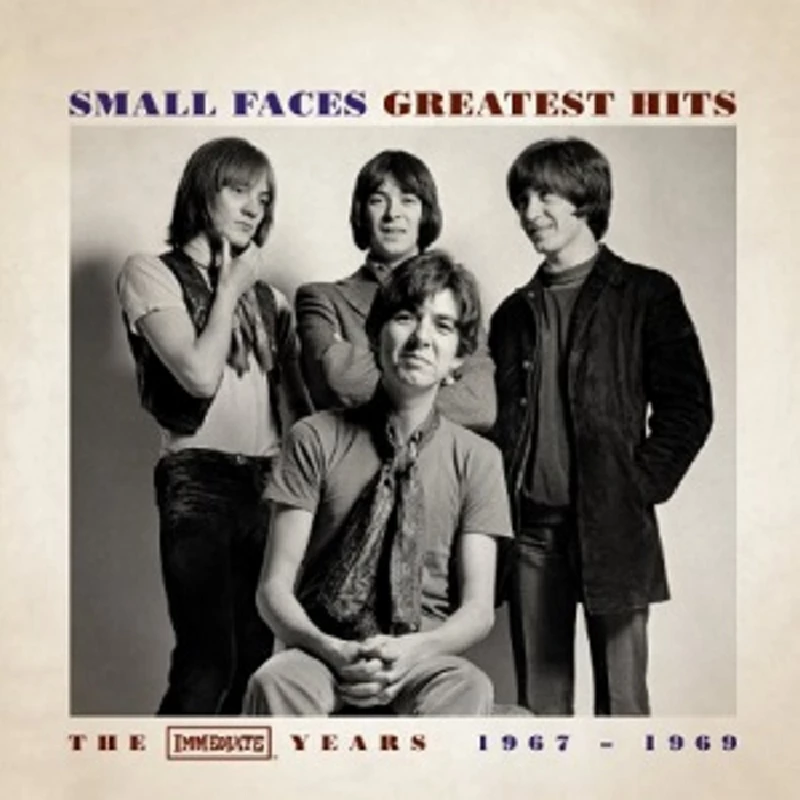
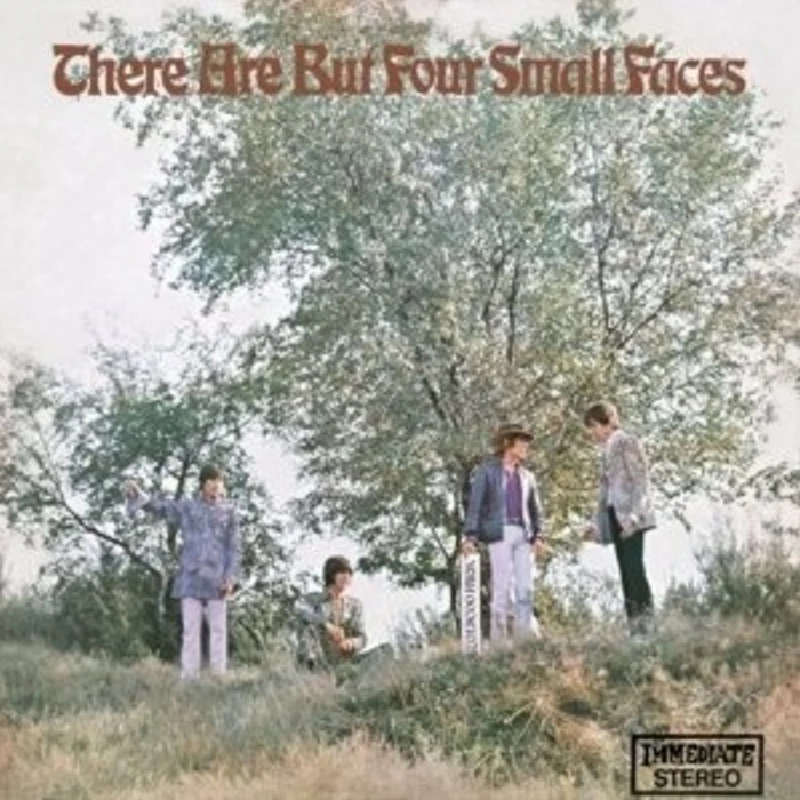
profiles |
|
Profile (2015) |
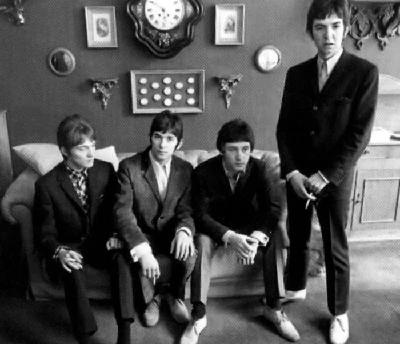
|
| Keith How reflects on new five CD Small Faces box set 'The Decca Years 1965-1967', which highlights their early years |
| Small Faces (2012) |
most viewed articles
current edition
Tossing Seed - InterviewMotorcycle Boy - Interview
Last of the Lovely Days - Interview
Lemonheads - O2 Ritz, Manchester, 16/8/2025
Waterboys - Roundhouse, London, 1/6/2025
Cary Baker - Down on the Corner: Adventures in Busking and Street Music
Robert Forster - Interview
Belouis Some - Video Vault
Brian Wilson - 1942-2025
Morrissey - Photoscapes
previous editions
Flip Side - Raging PagesBob Mould - Brooklyn Bowl, O2 Academy, London, 11/2/2016
Bill Hicks - Profile
Stereogram Revue - Voodoo Rooms, Edinburgh, 2/12.2015
That Petrol Emotion - That Petrol Emotion, Town and Country Club, London, 1988
Dave Greenfield - 1949-2020
Miscellaneous - Minehead, Somerset, 8/5/2009...10/5/2009
John Clarkson - A Life in Music
School - Interview
Ain't That Always The Way - Alan Horne After The Sound of Young Scotland 2
most viewed reviews
current edition
Liarbilitys - VandalheartKirk Adams and Ed Woltil - Eat The Sunshine, Drink The Starshine
Big Flame - Peel Sessions 84-86
Silver Biplanes - Coming Up For Air
Suzie Ungerleider - Among The Evergreens
Wolf Alice - The Clearing
Bruce Dickinson - More Balls to Picasso
Good Charlotte - Motel du Cap
Rupert Wates - Father to the Man
Phew, Erika Kobayashi,, Dieter Moebius - Radium Girls
related articles |
|
Ian Mclagan: Feature (2016 |
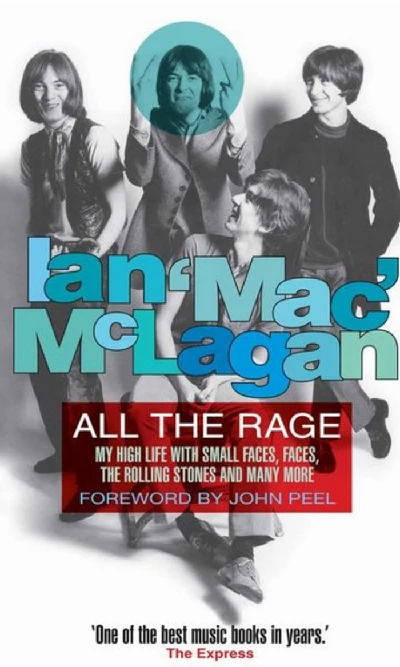
|
| In 'Raging Pages', her monthly book column, Lisa Torem reflects on the late Ian McLagan's ‘All The Rage: My High Life with Small Faces, Faces, The Rolling Stones and Many More,’ which was originally published in 1998 |
| Ian McLagan: Interview (2014) |
| Ian McLagan: Live Review (2014) |
Pennyblackmusic Regular Contributors
Adrian Janes
Amanda J. Window
Andrew Twambley
Anthony Dhanendran
Benjamin Howarth
Cila Warncke
Daniel Cressey
Darren Aston
Dastardly
Dave Goodwin
Denzil Watson
Dominic B. Simpson
Eoghan Lyng
Fiona Hutchings
Harry Sherriff
Helen Tipping
Jamie Rowland
John Clarkson
Julie Cruickshank
Kimberly Bright
Lisa Torem
Maarten Schiethart